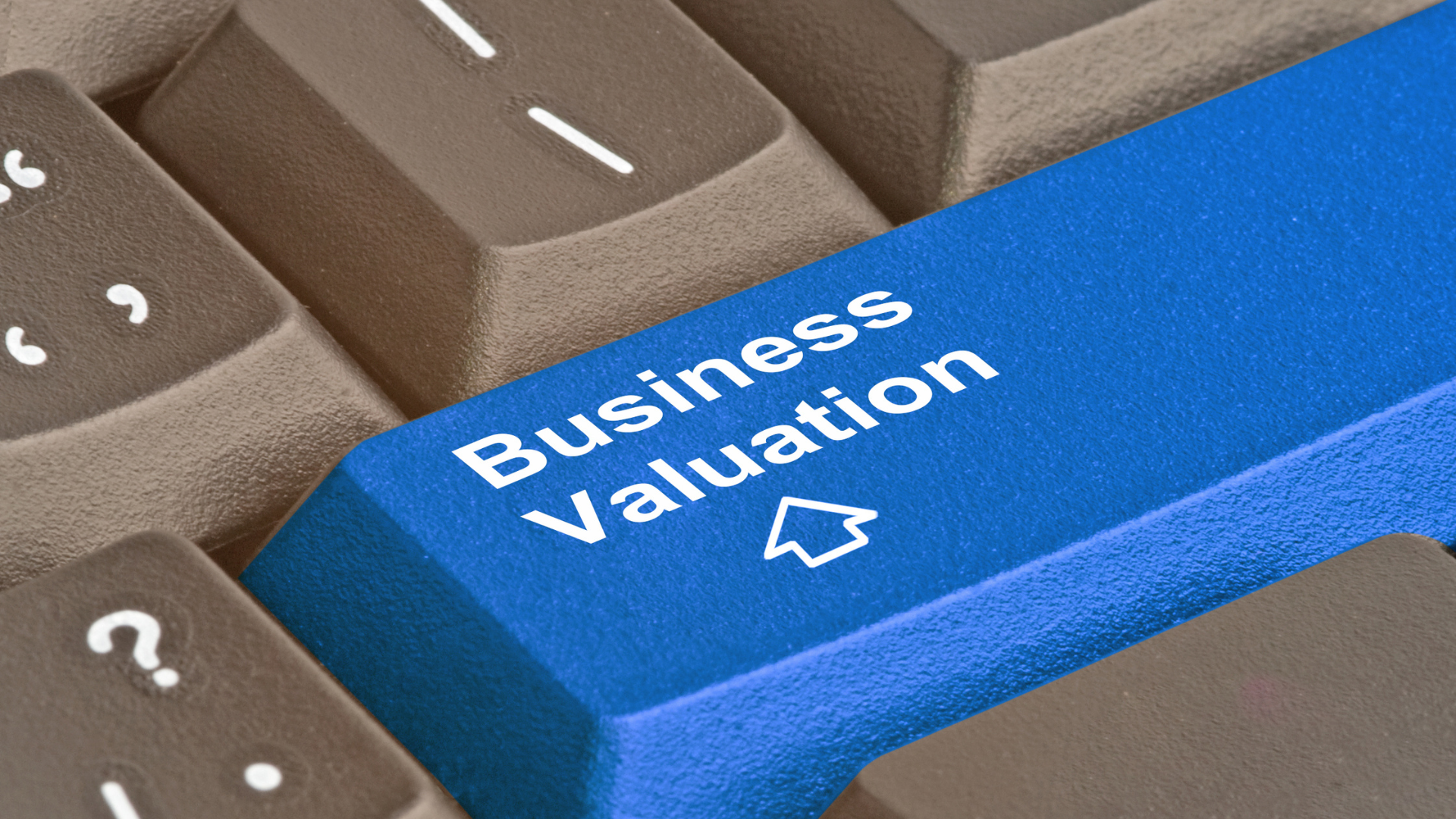Learning how to value your small business is crucial in determining how much your company can be sold for and can greatly impact its attractiveness to potential buyers or investors. These factors not only reflect the current financial health of a business but also provide insight into its future growth prospects. In this blog post, we will delve deep into various aspects that influence small business valuations.
We’ll begin by understanding the importance of net income and how it affects your company’s value. Subsequently, we’ll consider the advantages and disadvantages of EBITDA in terms of business valuation. We will then explore ways to identify add-backs that can increase your company’s value by analyzing tax returns for hidden opportunities.
Furthermore, we’ll examine using multiples based on risk assessment to determine appropriate values for businesses within specific industries while taking into account their unique risks. Finally, we will emphasize the importance of expert guidance when navigating through small business valuation factors by seeking advice from experienced advisors or utilizing professional services like accountants and attorneys.
Table of Contents
- Understanding the Importance of Net Income
- How To Value Your Business: Utilizing EBITDA
- Identifying Add-backs to Increase Value
- How To Value Your Business: Using Multiples
- The Importance of Expert Guidance
- FAQs in Relation to Small Business Valuation Factors
- What is the current market value of the business?
- How much revenue does the business generate annually?
- What are the company’s assets and liabilities?
- How competitive is the industry in which this business operates?
- Are there any legal or regulatory issues that could affect its future profitability?
- Conclusion
Understanding the Importance of Net Income
When valuing a small business, it is crucial to focus on net income rather than just looking at sales figures. Net income takes into account various expenses such as operating costs, cost of goods sold, and owner’s compensation through payroll. By analyzing net income, you can get a more accurate representation of the business’s profitability and potential value.
The Difference Between Sales Figures and Net Income
Sales figures represent the total revenue generated by a company during a specific period. Conversely, net income takes into account all costs incurred in order to provide an accurate assessment of the business’s profitability. On the other hand, net income considers both revenues and expenditures to determine overall profitability.
Analyzing Operating Costs in Small Businesses
In order to accurately assess your small business valuation based on net income, it is essential to analyze operating costs. These include rent or mortgage payments for office space, warehouses, salaries paid out to employees, utilities like electricity and water, marketing expenses such as advertising campaigns or promotional materials, and insurance premiums related specifically towards protecting company assets from potential risks, among others.
- Rent/Mortgage Payments: Determine whether your current location provides enough space for growth prospects while keeping rental/mortgage costs reasonable compared with similar businesses within your industry sector.
- Employee Salaries: Analyze if employee compensation packages are competitive enough without being overly burdensome financially – this could help attract top talent who may contribute significantly towards increasing overall productivity levels thereby boosting earnings potential over time.
- Utilities & Marketing Expenses: Review utility bills and marketing budgets to ensure they are in line with industry standards; if not, consider renegotiating contracts or reallocating resources more efficiently.
- Insurance Premiums: Evaluate whether your current insurance coverage adequately protects company assets while keeping premiums manageable – this may require consultation from an experienced agent who specializes within your specific field of operation.
More About Analyzing Costs
By closely examining these areas, one can gain insight into the financial performance of their enterprise. This information can then be used as part of the valuation process when negotiating with potential buyers or investors, ensuring that both parties arrive at a fair market value for the company based on its true earnings potential.
Net income is a critical metric in gauging the wellbeing of an enterprise and can be employed to evaluate its progress over time. Moving on, we will look at how EBITDA plays an important role in valuing businesses.
Key Takeaway:
When valuing a small business, it’s important to focus on net income rather than just sales figures. Net income considers both revenues and expenditures to determine overall profitability, which can help assess operating costs such as rent/mortgage payments, employee salaries, utilities & marketing expenses, and insurance premiums that affect the true earnings potential of the company.
How To Value Your Business: Utilizing EBITDA
Earnings Before Interest, Taxes, Depreciation, and Amortization (EBITDA) is an essential financial metric used in determining a company’s value. It helps adjust for non-operating factors that may affect net income by adding back depreciation, amortization, interest on debt among others. This adjusted figure provides a clearer picture of the actual cash flow generated by the core operations of the business.
Calculating EBITDA from Net Income
To calculate EBITDA from net income, start with your company’s net income figure found on its income statement. Then add back interest expenses related to any business loans or lines of credit. Next, add taxes paid during the fiscal year as well as depreciation and amortization expenses recorded on your balance sheet. The resulting sum represents your company’s EBITDA.
- EBITDA = Net Income + Interest + Taxes + Depreciation + Amortization
Advantages and Limitations of Using EBITDA
One significant advantage of using EBITDA for small business valuation is that it removes potential distortions caused by differences in tax rates or accounting methods between comparable businesses. By focusing solely on operational performance without considering capital structure or taxation issues like other business valuation methods, you can more accurately compare companies across industries.
However, there are some limitations to relying solely on this metric when valuing a small business:
- EBITDA neglects alterations in current assets and liabilities, which can significantly influence a firm’s money stream.
- It may overstate the value of businesses with high levels of debt or significant investments in fixed assets, as it ignores interest and depreciation expenses associated with these items.
- Some industries have unique characteristics that make EBITDA less relevant. For example, companies heavily reliant on intellectual property might have minimal tangible assets to depreciate but substantial intangible asset values that should be considered during valuation.
More About EBITDA
In summary, while EBITDA is an important factor when valuing small businesses, it should be used alongside other financial metrics like discounted cash flow analysis and seller’s discretionary earnings to provide a more comprehensive understanding of your business’s true worth.
EBITDA is an important factor in assessing a business’s value, yet there are other methods to enhance the worth of a small enterprise. Identifying add-backs and analyzing tax returns for hidden opportunities can help maximize the valuation of your business.
Key Takeaway:
EBITDA is a crucial financial metric used in business valuation as it helps adjust for non-operating factors that may affect net income. While it has advantages such as removing potential distortions caused by differences in tax rates or accounting methods, limitations include not accounting for changes in working capital and overestimating the value of businesses with high levels of debt or significant investments in fixed assets.
Identifying Add-backs to Increase Value
Some small business owners may include personal or non-recurring expenses within their operating costs or cost-of-goods-sold categories, which could artificially lower their reported profits. To obtain an accurate valuation when buying or selling a small business, it’s important to identify these add-backs so they can be removed from calculations, thereby revealing true earnings potential.
Common Types of Add-backs
- Owner’s salary: A significant portion of the owner’s compensation may be included in the payroll expense, but this should not be considered as part of the company’s operating expenses since it is essentially a distribution of profits. This amount should be added back to calculate seller’s discretionary earnings.
- Non-operating expenses: These are one-time costs that do not directly contribute to the core operations and revenue generation process. Examples include legal fees for disputes, moving expenses during relocation, and extraordinary repair costs due to natural disasters.
- Fringe benefits & perks: Personal items such as travel expenses, club memberships, and other lifestyle-related expenditures paid by the business on behalf of its owner(s) should also be added back.
Analyzing Tax Returns for Hidden Add-back Opportunities
Tax returns provide valuable insights into a company’s financial health and can reveal hidden add-back opportunities that may have been overlooked during initial analysis. By carefully reviewing tax returns over several years, you can uncover patterns related to recurring non-business-related deductions or unusual fluctuations in certain expense categories that warrant further investigation.
A thorough review will help identify intangible assets such as intellectual property, customer concentration, and competitive advantages that can significantly impact a business’s valuation. For example, if the company has a strong market share in its industry or enjoys an exclusive supplier relationship with key vendors, these factors should be considered when determining the appropriate multiple for your valuation approach.
It is essential to work closely with experienced professionals like accountants and attorneys who have expertise in business valuations during this process. They can help you navigate complex tax laws and regulations while ensuring that all relevant add-backs are accurately identified and factored into your calculations.
By identifying and analyzing add-backs, small business owners can increase the value of their company. Now let’s look at how to use multiples based on risk assessment to determine an appropriate valuation for a small business.
Key Takeaway:
To accurately value a small business, it’s important to identify and remove add-backs such as the owner’s salary, non-operating expenses, and personal fringe benefits. Analyzing tax returns can also reveal hidden opportunities for add-backs and help identify intangible assets that impact valuation. Working with experienced professionals like accountants and attorneys is essential during this process.
How To Value Your Business: Using Multiples
Determining an appropriate multiple based on risk assessment plays an essential role in calculating your small-business valuation accurately. Higher multiples reflect lower perceived risks, while smaller ones indicate greater uncertainty about future prospects. Factors like size and longevity impact this evaluation. Businesses with over $1 million annual revenue are generally considered less risky compared to those under that threshold due to better-established processes and longer operational history.
Determining Appropriate Multiples for Your Industry
To find the right multiple for your business, you should first research industry-specific multiples and compare them against similar businesses. This can give you a baseline understanding of what potential buyers or investors might expect when valuing your company. Keep in mind that these multiples can vary significantly depending on factors such as geographical location, market conditions, and growth prospects.
- Revenue Multiple: A common method used by many small business owners is the revenue multiple approach, which calculates the value of a business by multiplying its annual revenues by a specific factor (usually between 0.5 and 4).
- Earnings Multiple: Another popular valuation method is using earnings multiples, where net income or EBITDA (Earnings Before Interest, Taxes, Depreciation, and Amortization) figures are multiplied by a predetermined factor (typically ranging from 3 to 10).
Assessing Risk Factors in Small Businesses
In addition to considering industry standards when determining appropriate multiples for your business valuation process, it’s crucial to evaluate various risk factors associated with your company. Some key elements affecting perceived risk include:
- Customer Concentration: A business with a diverse customer base is generally considered less risky than one that relies heavily on a few major clients. This can lead to higher valuation multiples.
- Intellectual Property: Companies with strong intellectual property assets, such as patents or trademarks, may be viewed as more valuable and thus command higher multiples.
- Growth Prospects: Businesses demonstrating consistent revenue growth and market share expansion are often seen as lower-risk investments, resulting in increased valuation multiples.
Taking the time to thoroughly assess your business’s risk factors will help you determine an appropriate multiple for your specific situation. By doing so, you’ll be better equipped to negotiate a fair purchase price during the sale process or attract potential investors looking for promising opportunities within their target industries.
Using multiples based on risk assessment is a critical step in small business valuation, and having expert guidance can help ensure that the process is done correctly. The importance of expert guidance should not be overlooked when it comes to assessing the value of your business.
Key Takeaway:
To accurately calculate the valuation of a small business, determining an appropriate multiple based on risk assessment is crucial. Researching industry-specific multiples and assessing risk factors such as customer concentration, intellectual property, and growth prospects can help determine the right multiple for your business.
The Importance of Expert Guidance
Seeking the counsel of those with prior experience in buying or selling businesses is essential for arriving at an accurate valuation and securing a favorable price when valuing a small business. Their expertise can help you navigate the complexities involved in determining an accurate valuation and negotiating the best possible price for your company. Investing time and resources into finding such guidance could prove invaluable during this process.
Finding Experienced Advisors or Mentors
To ensure that you receive sound advice on business valuation methods, consider reaching out to industry veterans, successful entrepreneurs, or other small business owners who have gone through similar experiences. These individuals can provide valuable insights into factors affecting your company’s value and share lessons learned from their own transactions.
- Attend networking events targeted at small business owners and potential buyers to connect with like-minded individuals.
- Join online forums and discussion groups focused on entrepreneurship, where members often share their knowledge about valuations and growth prospects.
- Contact local chambers of commerce or trade associations for referrals to reputable experts in your industry.
Utilizing Professional Services like Accountants and Attorneys
In addition to seeking mentorship from seasoned entrepreneurs, engaging the services of qualified professionals such as accountants and attorneys specializing in mergers and acquisitions can greatly enhance the accuracy of your valuation process. These experts are well-versed in analyzing financial statements, assessing intangible assets like intellectual property rights, evaluating customer concentration risks among others – all crucial elements when determining a fair market value for any enterprise regardless of its size:
- Certified Public Accountant (CPA): A CPA can help you review your financial records, identify potential add-backs to increase value, and provide guidance on the most appropriate valuation methods for your business based on its unique characteristics.
- Business Valuation Specialist: These professionals possess specialized knowledge in valuing businesses of all sizes. They are skilled at conducting comprehensive analyses using various approaches such as discounted cash flow analysis or comparing similar businesses within the same industry.
- Mergers and Acquisitions Attorney: An experienced attorney can assist with legal aspects of selling a business, including drafting purchase agreements and negotiating terms that protect both parties’ interests while maximizing the seller’s return on investment.
Taking advantage of expert guidance when valuing your small business is an important factor in ensuring a successful transaction. By leveraging their expertise and experience, you’ll be better equipped to navigate this complex process and secure a favorable outcome for yourself as well as any potential investors or buyers involved.
Key Takeaway:
When valuing a small business, seeking guidance from experienced professionals is crucial. Industry veterans, successful entrepreneurs, and other small business owners can provide valuable insights into factors affecting your company’s value. Utilizing the services of qualified professionals such as accountants and attorneys specializing in mergers and acquisitions can greatly enhance the accuracy of your valuation process.
FAQs in Relation to Small Business Valuation Factors
What is the current market value of the business?
The current market value of a business depends on various factors, such as net income, EBITDA, industry multiples, and risk assessment. To determine an accurate valuation, consult with experienced advisors or utilize professional services like accountants and attorneys. For more information on valuing small businesses, visit the SBA’s guide.
How much revenue does the business generate annually?
To find out how much revenue a business generates annually, review its financial statements or tax returns for total sales figures. Keep in mind that this figure alone may not accurately represent profitability; it’s essential to consider expenses and other financial metrics when evaluating a company’s performance. The Investopedia article provides more details about revenues.
What are the company’s assets and liabilities?
A company’s assets include tangible items (e.g., equipment) and intangible items (e.g., intellectual property), while liabilities consist of debts owed by the firm. Analyzing these components helps assess overall financial health during valuation processes. Review balance sheets from annual reports or consult professionals for assistance in identifying assets and liabilities within your specific context. Learn more about them at Corporate Finance Institute.
How competitive is the industry in which this business operates?
Industry competitiveness can impact small businesses’ growth potential and risk levels. Research market trends, competitor performance, and barriers to entry within your industry to gauge competitiveness. The IBISWorld website offers comprehensive reports on various industries that can help you understand the competitive landscape.
Are there any legal or regulatory issues that could affect its future profitability?
Legal and regulatory issues may impact a business’s operations and profitability. Stay informed about relevant laws, regulations, and potential changes by monitoring government websites or consulting with attorneys specializing in your industry.
Conclusion
If you want to sell your business for what it’s truly worth, and transfer it into a safe pair of hands, Contact Us today and we’ll help you do it in 3 easy steps!




